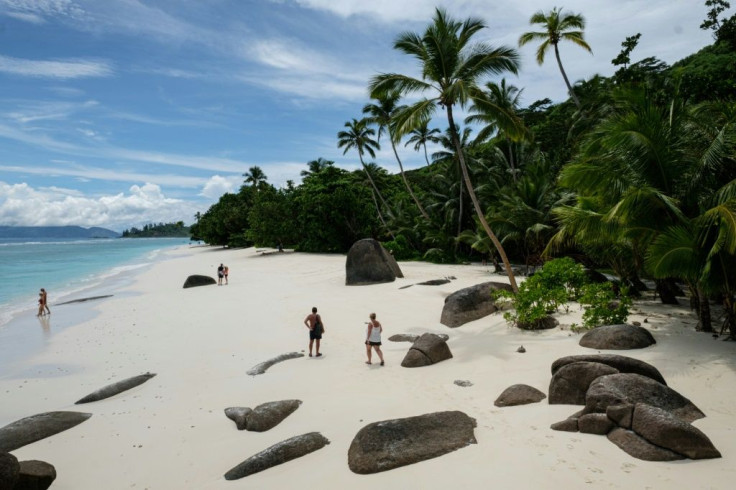Seychelles Kicks Off Three-day Election Across Archipelago
The Seychelles on Thursday kicked off three days of voting for the president and lawmakers, with polling to be spread out across the 115 scattered islands making up the idyllic archipelago.
The election began on a few dozen far-flung islands, mainly for employees of hotels or the island management authority, who voted in pop-up polling stations with election material carried by plane or boat early in the morning.
"All flights for outer island voting... have left on time with representatives of the electoral commission, observers, political party representatives and police officers," the polls body said in a statement.
The opposition, narrowly defeated in a presidential election in 2015 and buoyed by a landmark victory in a parliamentary poll a year later, is hoping for its first ever presidential win.
However the main opposition parties did not manage to unite and President Danny Faure -- who was not elected but took over after his predecessor James Michel resigned -- faces two challengers.
Most of the Indian Ocean islands making up the Seychelles, a prized honeymoon destination famed for white beaches and lush vegetation, are uninhabited and the archipelago's 98,000 residents mainly live on the islands of Mahe, Praslin and La Digue.
Voting on these islands will take place on Saturday from 7 am to 7 pm, while the outer islanders are voting Thursday and Friday.
Faure's main rival is the Anglican priest Wavel Ramkalawan, who is taking his sixth shot at the presidency and lost by only 193 votes to Michel in an unprecedented second round of voting in 2015.
He is the candidate of the Linyon Democratik Seselwa (Seychelles Democratic Alliance) opposition party, the majority party in parliament after winning 19 of 34 seats in the last election.
The other candidate is Alain St Ange, who was in the opposition before joining the government as tourism minister between 2012 and 2016.
He has now switched back and is running for the One Seychelles party which he created a year ago, but could pay the price for crossing over to the opposition.
Meanwhile Faure is running under the recently renamed United Seychelles ruling party which has been in power since 1977.

The main concern of voters is the economic situation in the country, which has suffered the loss of vital tourism -- its main earner -- because of the coronavirus pandemic.
The Seychelles has recorded only 149 mostly imported cases, but the virus has been a key campaign issue, with the health minister banning election rallies which would have been a barometer of support for various candidates in a country without a polling institute.
The campaign has mainly taken place over social media, where the opposition and its supporters are the most active, and on television where the country held its first ever debates between the candidates, which proved extremely popular.
Since the start of the pandemic, the economy has slowed significantly, with some 700 Seychellois losing their jobs, according to government figures.
And while average income is among the highest in Africa, the national statistics agency says that about 40 percent of Seychellois live in poverty because of the high cost of living.
Another key theme of the campaign has been corruption, a largely taboo topic in the tiny country where business and politics are often intertwined.
While the Seychelles is classed by Transparency International as being perceived as the least corrupt country in Africa and among the 30 least corrupt in the world, it is also a tax paradise housing numerous offshore companies.
An anti-corruption commission created in 2016 is still probing the disappearance of a $50 million (42 million euro) donation from the United Arab Emirates 18 years ago, but its slowness and lack of resources have been criticised.
By proposing the legalisation of cannabis -- which Faure opposes -- One Seychelles has also put drugs at the heart of the campaign, in a country which has one of the world's highest rates of heroin addiction.
The government has put in place a widely supported system of methadone distribution and has poured money into drug prevention and rehabilitation programmes.
© Copyright AFP 2024. All rights reserved.





















